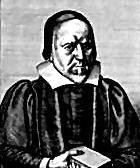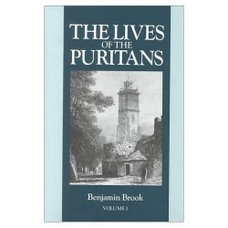The Puritans
The Oxford English Dictionary suggests that the word Puritan came into fashion around 1556 in Queen Mary’s reign. (Mary lived 1516-1558. She succeeded 1553.) Cf the relevant article on English Dissenters here. Church historian Thomas Fuller apparently wanted the word Puritan banned so imprecise did he consider it.
Carl Trueman is not the first to have observed that the word ‘has proved notoriously difficult to define.’ He says, helpfully, that ‘it remains true to say that it is easier to give examples of Puritans than give a precise and fully adequate definition of Puritanism’.(C R Trueman, The Claims of Truth; John Owen’s Trinitarian Theology Carlisle: Paternoster Press, 1998, 9). More analytically Jim Packer says ‘Puritan was an imprecise term of contemptuous abuse which between 1564 and 1642’ that applied, he says, to at least five overlapping groups.
1. Clergy, who ‘scrupled some Prayer Book ceremonies and phrasing’.
2. Those who wanted the Presbyterian reforms advocated by Thomas Cartwright (1535-1603) and the 1572 Admonition to the parliament.
3. All who ‘practised a serious Calvinistic piety’.
4. Rigid Calvinists who applauded the Synod of Dort, ‘called doctrinal Puritans by other Anglicans who did not’.
5. MPs, JPs and other gentry who ‘showed public respect for the things of God, England’s laws and her subjects’ rights’.
(Jim Packer, Quest for godliness, 35). Cartwright was a popular Cambridge preacher whose lectures on Acts, 1569-1571 had a big an impact on some eager for further ecclesiastical reform. Deprived of his fellowship he moved to the continent. The Admonition was probably by John Field (1545-1588) and Thomas Wilcox (1549-1608). London based Cartwright disciples were imprisoned for it. It was disliked by moderate Puritans eg John Foxe (1516-1587), Thomas Lever (1521-1577).
The Synod of Dort, a Reformation milestone and the source of the Canons of Dort (the 5 Points of Calvinism) was an international conference in Dort or Dordt (Dordrecht) Nov 1618-May 1619 called to settle controversy in the Dutch Reformed Church over teaching linked to Jacob Arminius (1560-1609) and promoted by Franciscus Gomarus (1563-1641), etc. Ames, Lancelot Andrewes (1555-1626), John Davenant (1576-1641), Joseph Hall (1574-1657), Samuel Ward (1572-1643) attended. See here.)
In an essay on the subject Peter Lake pinpoints three positions regarding the question in recent historiography. (Peter Lake. ‘Defining Puritanism – again?’, Francis J Bremer ed. Puritanism: Transatlantic Perspectives Boston: Massachusetts Historical Society, 1993, 3-29).
First, Puritanism was a movement committed to further reformation in the church’s government or liturgy. In Intellectual origins of the English Revolution revisited Christopher Hill confined the word Puritan to ‘all those radical Protestants who wanted to reform the Church but (before 1640 at least) did not want to separate from it.' (Christopher Hill, Intellectual origins of the English Revolution revisited Oxford: Clarendon, 1997, 25, 26). The unlikelihood of a restructuring of the Church of England no doubt helped such to focus on reforming pastoral care within established structures.
Second, Puritanism was ‘a style of piety, an emotional and ideological style’. Dr Lloyd-Jones, for example, also argued that Puritanism goes back at least as far as the English Reformer William Tyndale (1495-1536) and is an attitude of mind and heart (D M Lloyd-Jones, The Puritans: their origins and successors, Edinburgh: Banner of Truth, 1981, 240). He calls Knox the first Puritan (ibid, 260). Cf Knappen; Everett Emerson, English Puritanism From John Hooper to John Milton (Durham: Duke UP, 1968). Geoffrey Nuttall, The Puritan Spirit, London: Epworth Press, 1967, 11, similarly speaks of ‘ … that spirit in religion which has driven men at all times to seek a purer way of life’. Christopher Hill is not far from that with ‘a philosophy of life, an attitude to the universe, … not in the narrow sense restricted to religion and morals …’ (Hill, Intellectual origins, 260, 261)
Those taking this second position either ‘seek a core of definitively Puritan notions or opinions’ or see Puritans as a zealous and intense subset within the broader Protestant movement.
Those taking this second position either ‘seek a core of definitively Puritan notions or opinions’ or see Puritans as a zealous and intense subset within the broader Protestant movement.
Thirdly, more recently the view that ‘residual notions of Puritanism as a free-standing view of the world are best jettisoned’ has been floated. The word Puritan is seen as no more than a literary device of the time (Bremer, 3-5).
Lake’s own view he describes as an amalgam of the second and third approaches. He suggests that several strands made up the typical Puritan. It is the presence not of one or two strands that identifies the Puritan but a whole series of them creating a ‘central core of a Puritan style, tradition or world view’ (Ibid, 6.). The predestinarian strand, for example, is part of Puritanism but as Lake points out elsewhere ‘between 1560 and 1625 the doctrine of predestination was accepted without question by virtually all of the most influential clergymen in England, puritan and non-puritan alike’. Lake develops his earlier argument that ‘the core of the moderate puritan position lay neither in the puritan critique of the liturgy and polity of the church nor in a formal doctrinal consensus’ but ‘in the capacity, which the godly claimed, of being able to recognise one another in the midst of a corrupt and unregenerate world’. They insisted on the ‘transformative effect of the word on the attitudes and behaviour of all true believers.’
(Cf Christopher Durston and Jacqueline Eales, The culture of English Puritanism 1560-1700, Basingstoke: MacMillan, 1996, 7; Peter Lake, Moderate Puritans and the Elizabethan Church, Cambridge: CUP, 1982, 282. Further discussion of the definition of Puritanism can be found in the opening essays by John Morrill and Dwight Brautigam in Laura Lunger Knoppers (ed), Puritanism and Its Discontents, Newark: University of Delaware Press and London: Associated University Presses, 2003, 27ff.)
By Puritans we mean men of this sort. This group is often identified with the early ‘spiritual brotherhood’ of Richard Greenham (1531-1591), Richard Rogers (1550-1620), Henry Smith (1550-1591), John Dod (1549?-1645), Arthur Hildersham (1563-1632) and those like Richard Bernard who succeeded them prior to the later Puritan ascendancy.
(Cf Christopher Durston and Jacqueline Eales, The culture of English Puritanism 1560-1700, Basingstoke: MacMillan, 1996, 7; Peter Lake, Moderate Puritans and the Elizabethan Church, Cambridge: CUP, 1982, 282. Further discussion of the definition of Puritanism can be found in the opening essays by John Morrill and Dwight Brautigam in Laura Lunger Knoppers (ed), Puritanism and Its Discontents, Newark: University of Delaware Press and London: Associated University Presses, 2003, 27ff.)
By Puritans we mean men of this sort. This group is often identified with the early ‘spiritual brotherhood’ of Richard Greenham (1531-1591), Richard Rogers (1550-1620), Henry Smith (1550-1591), John Dod (1549?-1645), Arthur Hildersham (1563-1632) and those like Richard Bernard who succeeded them prior to the later Puritan ascendancy.













No comments:
Post a Comment